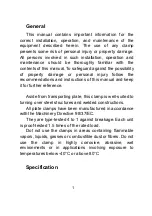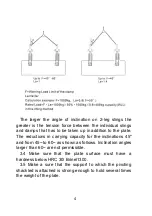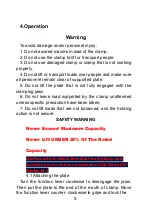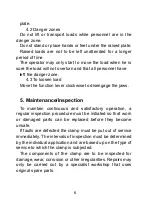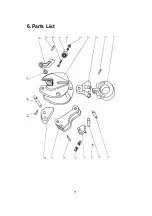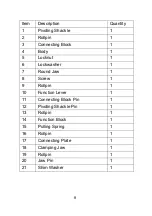
plate.
4.2 Danger zones
Do not lift or transport loads while personnel are in the
danger zone.
Do not stand or place hands or feet under the raised plate.
Raised loads are not to be left unattended for a longer
period of time.
The operator may only start to move the load when he is
sure the load will not overturn and that all personnel have
left the danger zone.
4.3 To loosen load
Move the function lever clockwise to disengage the jaws.
5. Maintenance/Inspection
To maintain continuous and satisfactory operation, a
regular inspection procedure must be initiated so that worn
or damaged parts can be replaced before they become
unsafe.
If faults are defected the clamp must be put out of service
immediately. The intervals of inspection must be determined
by the individual application and are based up on the type of
service to which the clamp is subjected.
The components of the clamp are to be inspected for
damage, wear, corrosion or other irregularities. Repairs may
only be carried out by a specialist workshop that uses
original spare parts.
6
Summary of Contents for CL05
Page 8: ...6 Parts List 7 ...


